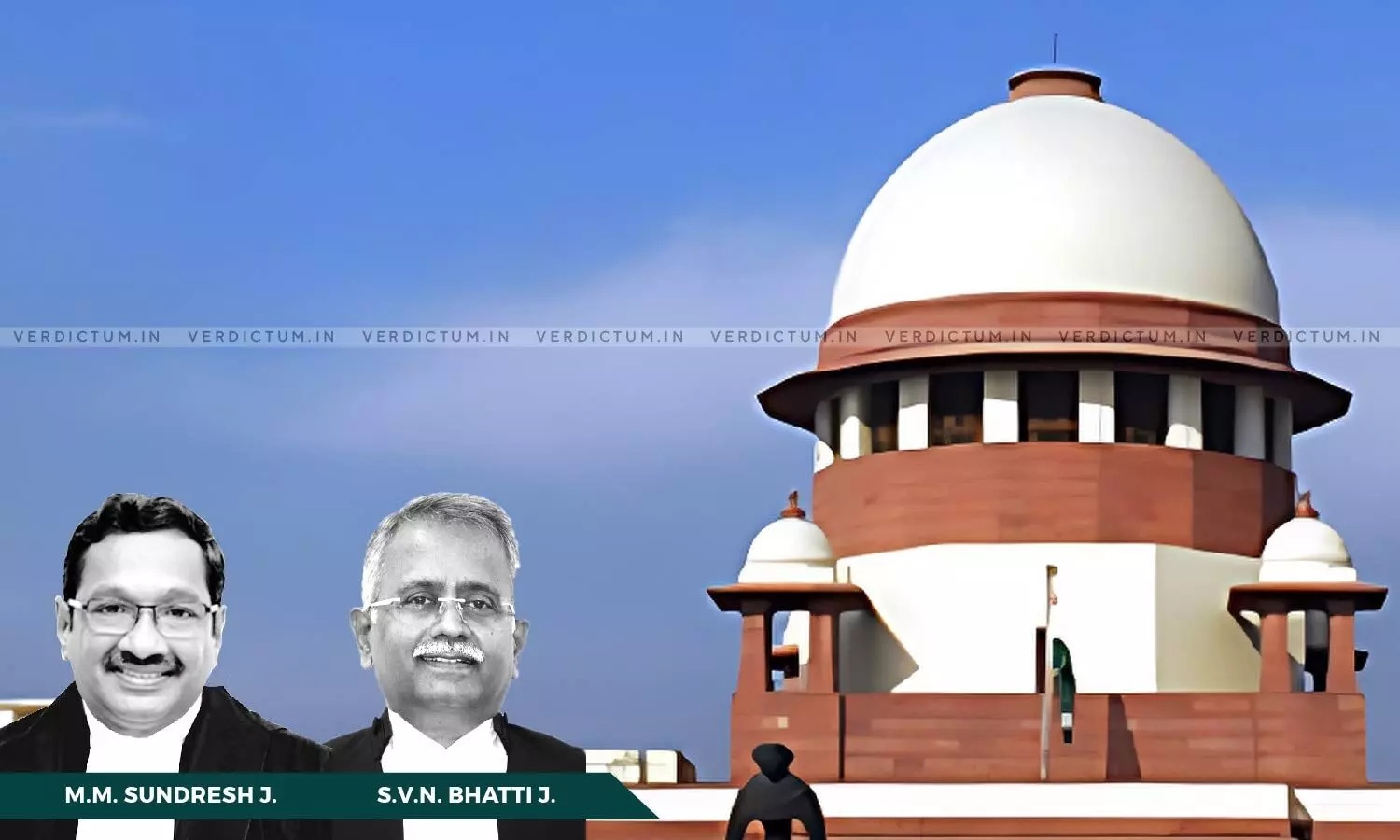
Children Born Out Of Void/Voidable Marriage Entitled To Share Of Notionally Partitioned Property Of Their Parents: Supreme Court
 |
|The Supreme Court held that children of void/voidable marriage are entitled to share of the notionally partitioned property of their parents.
A suit for partition and possession of agricultural lands treated as joint family/ancestral properties. The claim for partition in the share of the property was notionally allotted to the deceased and the claim was not pressed as coparceners but as legal heirs of the deceased.
Justice M.M. Sundresh and Justice S.V.N. Bhatti observed, “Irrespective of whether the marriages of Appellant No. 2 and Respondent No. 2 with Muthusamy Gounder are void or voidable, denying the children of Muthusamy Gounder a share in the property of notional partitioned in favour of Muthusamy Gounder, is unsustainable in law and fact.”
AOR Rakesh K. Sharma represented the appellants, while AOR T.R.B. Sivakumar appeared for the respondents.
The trial court rejected the status of the heirs as coparceners since there was no evidence to prove the factum of marriage between the parents. The Madras High Court accepted the view of the trial court and held that the claim for partition on the footing of the existence of the coparcenary with the parties of the suit would not arise.
The Supreme Court pointed out the common infirmity in the examination of issues by both the Trial and the Appellate Courts. The Court remarked, “In the present case, the claim as a coparcenary is unacceptable for want of evidence on the factum of the marriage of Muthusamy Gounder with Appellant No. 2 and Respondent No. 2; the courts below ought to have considered the relief from admitted circumstances on record.”
The Court explained that in a partition suit, the distribution of shares is dependent upon the status and the timing of the partition decree. The shares fluctuate based on events within the family and the circumstances presented by the parties involved in the lis.
The Court rejected the argument that the status of parties claiming a share in the property was without evidence.
The Court concluded, “We allow the appeal by passing a preliminary decree of partition for the plaint schedule properties, firstly between Respondent No. 3 and Muthusamy Gounder. Secondly, in the notionally partitioned share of Muthusamy Gounder, his children, i.e., Appellant Nos. 1 and 3, Respondent No. 1 and Respondent No. 3 are allotted equal shares.”
The Court set aside the judgments of both the appellate and trial court.
Accordingly, the Supreme Court allowed the appeal.
Cause Title: Raja Gounder & Ors. v. M. Sengodan & Ors. (2024 INSC 47)
Appearance:
Appellants: AOR Rakesh K. Sharma
Respondents: AOR T. R. B. Sivakumar, Advocates Vinodh Kanna B, K.K.S. Krishnaraj and Shagufa Khan